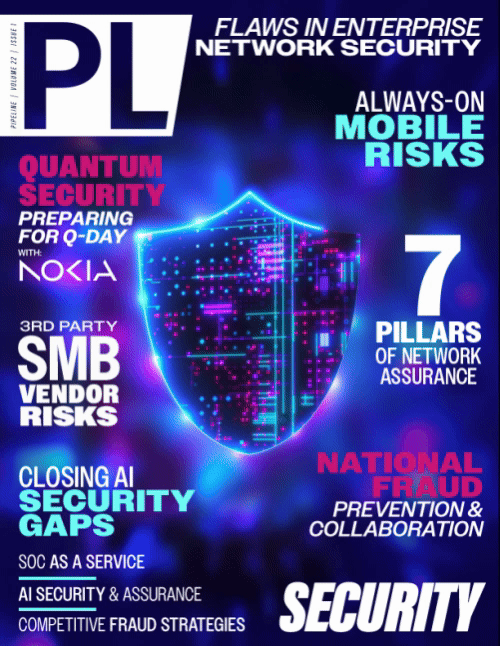Always On Means
Mobile Customers Are Always At Risk
Today’s consumers are always connected, and the telecom industry can play an important role in ensuring “always on” doesn’t mean “always at risk.” In a world where customer trust is a coveted competitive asset, providers that proactively protect customers will be best equipped to earn that trust.
Self-service tools can go a long way in supporting this goal by empowering customers to quickly lock SIM cards, change passwords, or verify account activity from a convenient dashboard. A key consideration is to remove friction when it matters most. A combination of education and control builds loyalty by showing customers investment in their digital safety.
2. Systemic enhancement:
Making security a visible value-add
Security shouldn’t always be a back-end function. In fact, making it a visible part of the customer experience sends a strong signal about a telecom’s priorities.
Call verification tools, advanced spam call blocking, and fraud alerts are all examples of how a telecom can evolve from a mere service provider into a customer’s trusted digital partner. This visibility reinforces the idea that a telecom’s true value extends beyond connectivity to include safeguarding the experience.
Providers can bundle these protections as part of a premium service package or loyalty program, turning security into a differentiator that increases the perceived value of the relationship. As mobile scams become more sophisticated, the ability to authentically promote consumer-focused protections becomes a competitive advantage, especially for those security-minded prospects who are concerned about digital safety.
3. Partner alignment: Strengthening standards and credibility
In today’s world, technical capabilities and price can no longer be the only considerations when evaluating potential vendors and partners. Cybersecurity practices and reputation are key factors telecom providers should weigh heavily when assessing vendors. Such an approach requires digging more deeply into their cybersecurity practices, understanding how potential partners handle customer data, and knowing exactly what their incident response plans entail. When telecom providers hold partners to their same security standards, they’re better prepared to respond to situations where supply chain vulnerabilities impact customer safety.
When telecoms work with partners known for reliability and security, it strengthens their positioning as a trustworthy provider. In an environment where consumers and small businesses are increasingly aware of their need for cyber protection, earning a reputation for guarding customer data can be a differentiator that works in your favor.
At the same time, a brand’s reputation can be quickly damaged when an event happens — and customers won’t necessarily differentiate between their telecom providers and their telecom providers’ vendors. Sound partner due diligence not only protects telecom customers but also the organization’s brand and long-term credibility.
Protecting the mobile future
Today’s reliance on mobile devices means they’re only becoming more central to consumers’ lives — and therefore, they’ll remain ever-more attractive targets for threat actors. Telecom providers that empower consumers, strengthen systemic defenses, and build secure partner ecosystems will not just reduce fraud losses but build deeper customer loyalty.
Today’s consumers are always connected, and the telecom industry can play an important role in ensuring “always on” doesn’t mean “always at risk.” In a world where customer trust is a coveted competitive asset, providers that proactively protect customers will be best equipped to earn that trust.



















